Judi Lynn
Judi Lynn's JournalCollapse of Chavin culture was followed by a period of violence
By:
Mark Milligan
Date:April 2, 2024
Anthropology
Collapse of Chavin culture was followed by a period of violence
A skeletal analysis has revealed that a period of violence followed the collapse of the Chavín culture in Peru.
The Chavín culture was a pre-Columbian people that emerged in the Andean highlands of Peru around 900 BC. The Chavín were the main culture of the Early Horizon period and had an advanced understanding of metallurgy, ceramic production, irrigation, and an intensified religious cult.
Its center was Chavín de Huantar, a monumental ceremonial site in northern Peru in the Marañon River basin.
Just before the collapse of the culture around 500 and 400 BC, the Chavín people went through a turbulent period caused by political disintegration and inter-group violence, possibly caused by a transition from a theocracy to secular government. After the collapse, it is likely that surviving communities competed for the scant resources in the Supe Valley region.
A new study, published in the journal Latin American Antiquity, has analysed the skeletal remains of 67 individuals from a burial site in the Supe Valley region near Caral. The burials date from between 500-400 BC and show injury patterns characteristic of repeated events of interpersonal violence in 80% of the individuals.
More:
https://www.heritagedaily.com/2024/04/collapse-of-chavin-culture-was-followed-by-a-period-of-violence/151299
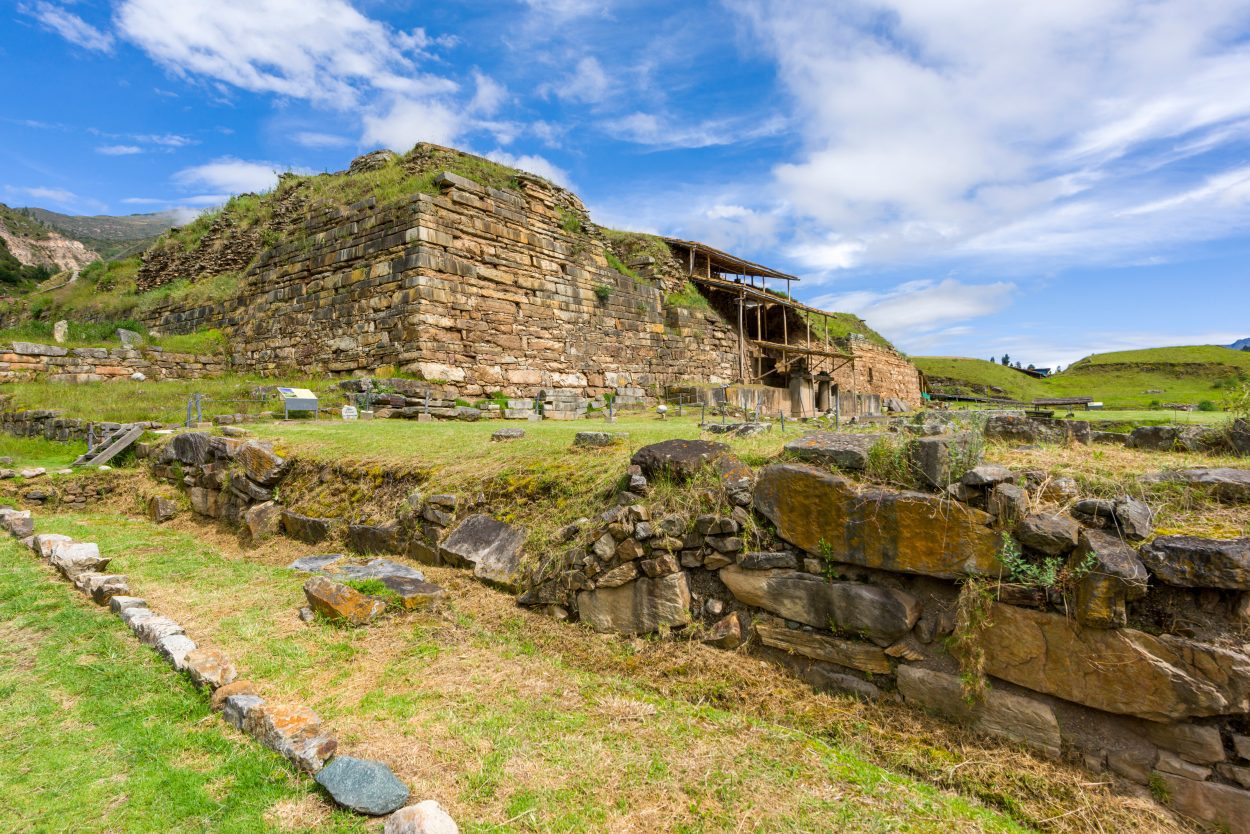

Underground Tunnels within the Main Temple of Chavin De Huantar

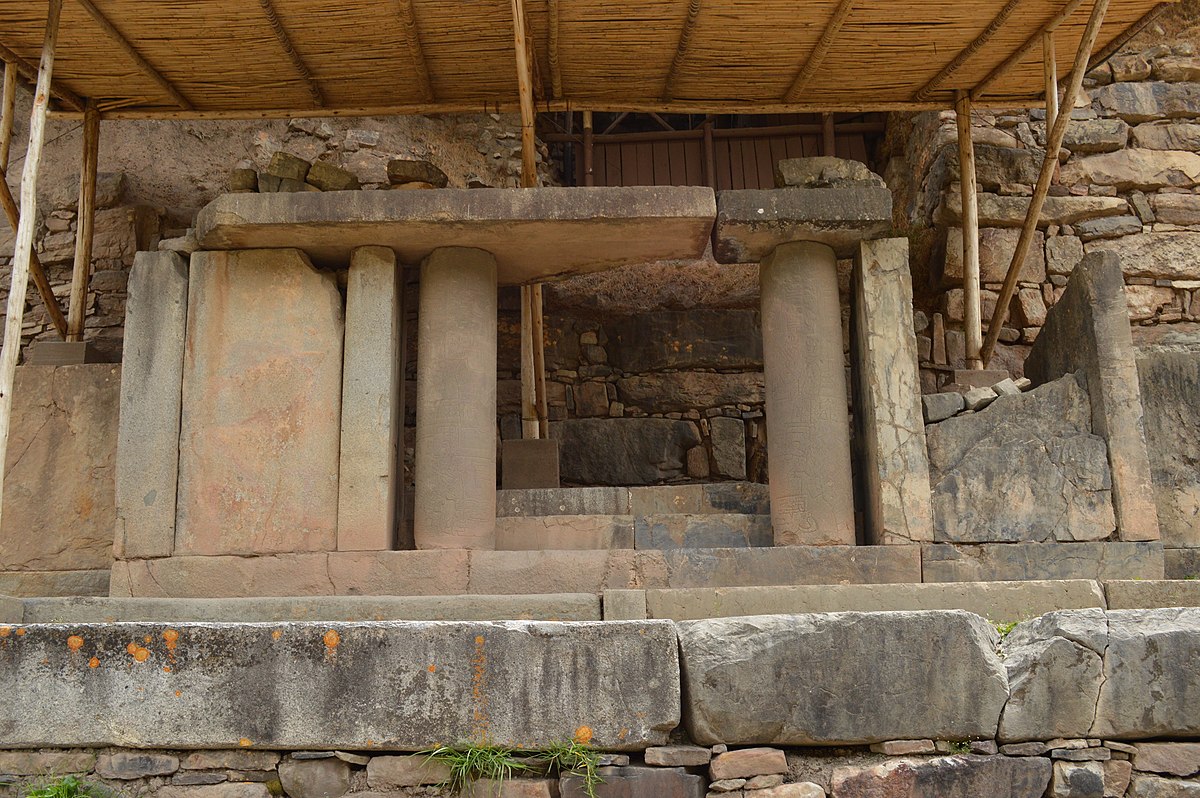

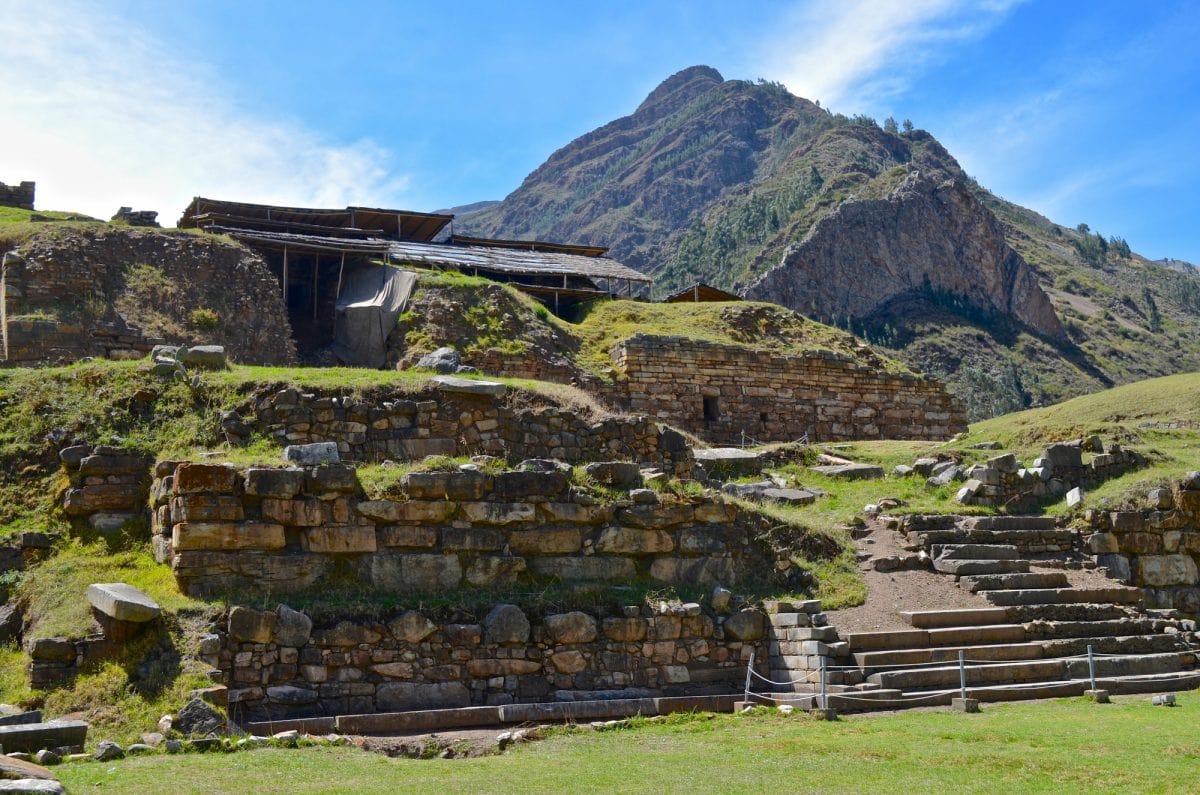

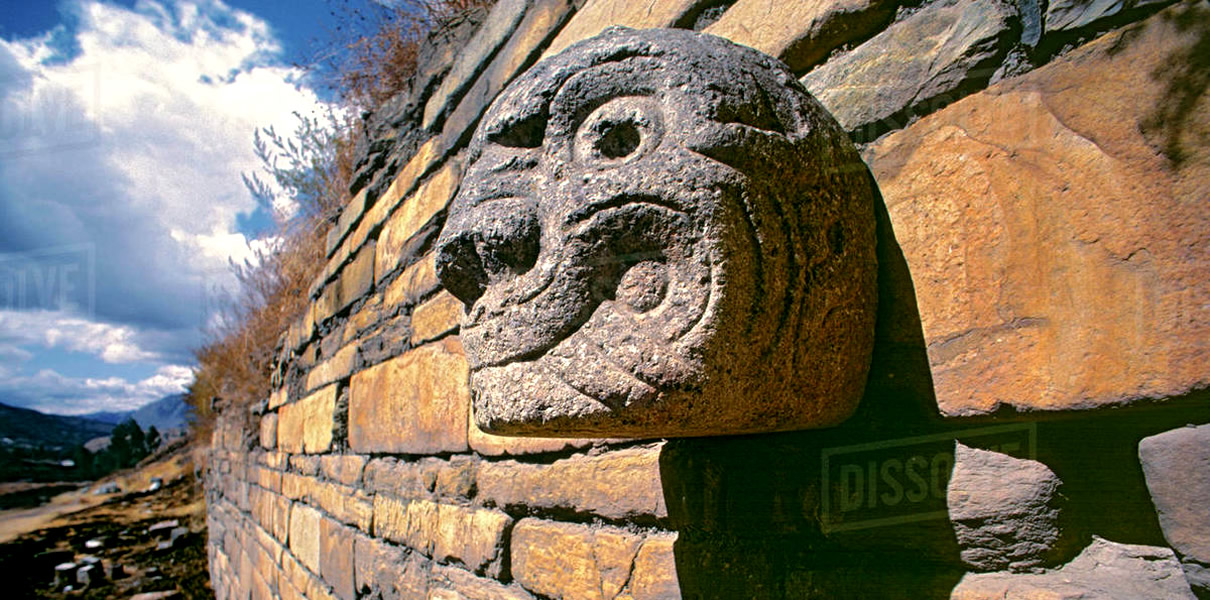
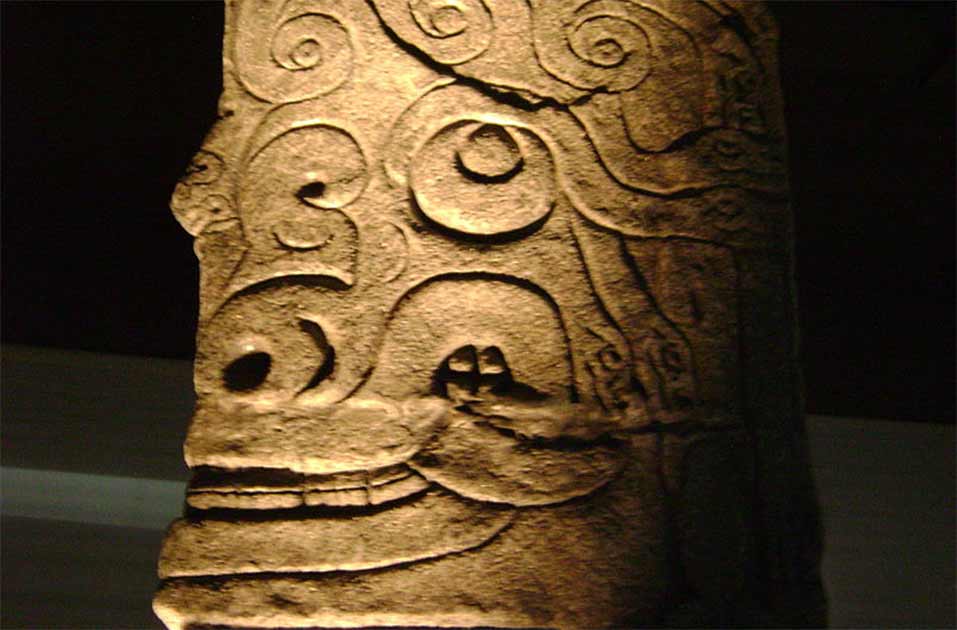

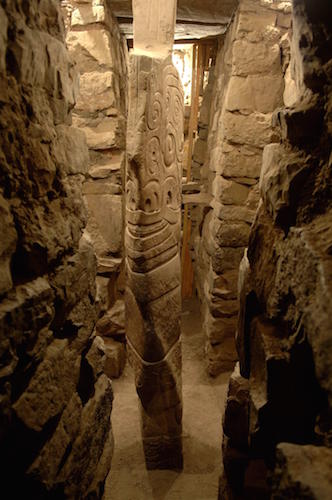

ETC.
Venezuelan Election Laws are Designed to Guarantee Democracy Despite Personal Ambitions
APRIL 1, 2024
BY NINO PAGLICCIA
Venezuela has one of the most progressive constitutions in the world spearheaded by former president Hugo Chavez in 1999. Article 1 sets the tone: “The Republic of Venezuela is forever and irrevocably free and independent from any domination or protection by a foreign power.” This is binding to everyone in Venezuela. The constitution is supported by a strong set of regulatory legislation that is also applied judiciously by the different government bodies and Venezuelan institutions under a strict democratic process determined to defend its sovereignty and independence. One piece of legislation in particular is relevant these days as the country approaches a democratic presidential election on July 28. That is the Organic Law of Electoral Processes. However, one ambitious candidate is willing to break the law – and with it the democratic process – in order to succeed in her intentions.
If you hear the US based media and some government officials you would think that Venezuela is a dictatorship that prevents political parties and presidential candidates to participate in the elections. One Venezuelan candidate would also try to convince you of that. She is Maria Corina Machado who is a member of one of the old Venezuelan elite families that has lost its prominence after the more egalitarian government of Hugo Chavez, but most dangerously represent the rightwing Vente Venezuela party determined to get rid of president Nicolas Maduro at all costs.
Ms. Machado has a long history of violating Venezuelan laws in her eagerness to regain the family ascendance by vehemently and violently rejecting the more popular ideology of Chavismo. She has been doing so not by seeking the support of the Venezuelan people but by seeking foreign support instead, namely from the United States.
Quite predictably, Washington actively promotes her as the opposition candidate and by doing so it sets the stage for delegitimising the Venezuelan presidential election.
In a recent article titled “Yet again US meddles in another nation’s elections” Venezuelan Canadian author and analyst María Páez Victor writes that the US government totally disregards the fact that “in 2015, Machado was disqualified from running for public office for 15 years, for corruption and for representing a foreign country (Panama) while being a Parliamentary deputy, which is forbidden by the Constitution. This disqualification has been ratified by the highest court, Venezuela’s Supreme Court.”
More:
https://www.counterpunch.org/2024/04/01/venezuelan-election-laws-are-designed-to-guarantee-democracy-despite-personal-ambitions/
Brazil remembers the 1964 coup and victims of the dictatorship
Brazil is remembering the 1964 coup that began on March 31 that year. The event 60 years ago sunk Brazil into a brutal 21-yearlong dictatorship that would last until 1985. Today, the country is still grappling with the meaning and memory of what happened.
The World
April 1, 2024 · 3:15 PM EDT
By Michael Fox

A convoy of Brazilian army troops, tanks and other vehicles pauses on the way to Rio de Janeiro, on April 1, 1964, after conspirators in the country's military high command overthrew the government and forced Brazilian President João Goulart to flee.
Photo/AP
On March 31, hundreds of people in the city of São Paulo, Brazil, walked to a former government detention and torture center in, in an event known as the "Walk of Silence." They were there to remember the anniversary of the 1964 coup and victims of the dictatorship, with many carrying large, black-and-white pictures of the victims.
In a video on YouTube, Angela Mendes de Almeida speaks to the crowd. “My husband was tortured and killed here,” she said. “It’s really hard for me. We have the obligation of continuing to demand punishment for the generals.”
During the military regime, hundreds were killed and disappeared. Thousands were detained and tortured.
Today, retiree Gracinda Gra has long gray hair and wears glasses. She was 6 years old on the day of the coup.
“The police came knocking at our door in São Paulo,” she said. "My dad was in a union. He went to jail. He was tortured. Just to remember it, givesme the chills."
On March 31, 1964, tanks rolled on the streets of Brasilia to overthrow President João Goulart, a member of Brazil’s Labor Party. He’d been pushing redistributive policies including tax reform, moderate agrarian reform and literacy campaigns.
More:
https://theworld.org/stories/2024-04-01/brazil-remembers-1964-coup-and-victims-dictatorship
EMILE MYBURGH: Beware the silence on Brazil's military dictatorship
Horrors committed under the military regime must be talked about, so that they can be avoided in future
02 APRIL 2024 - 05:00
by EMILE MYBURGH
On April 1, Brazil quietly celebrated the 60th anniversary of the beginning of one of its darkest chapters: the military coup against president João Goulart’s government, which resulted in a military dictatorship that lasted until 1985.
Brazilian President Luiz Inácio Lula da Silva curiously asked, presumably in a spirit of letting bygones be bygones, that Brazilians not make a big deal of this dubious milestone. I cannot agree with him. The horrors committed during the military regime must be talked about, so that they can be avoided in future and so that Brazil can heal.
Ostensibly, the coup was to fight communism, the eternal right-wing bogeyman in Brazil and elsewhere in Latin America. During the ensuing years hundreds of Brazilian students, teachers, academics and artists, all supposed communists or opponents of the dictatorship, were tortured and killed. The coup and military regime were widely supported by the US and middle and upper Brazilian classes and institutions such as the Catholic Church and anti-communist forces.
In 1968 the military regime doubled down on resistance and issued Institutional Act 5 (known as AI5), which resulted in extensive censorship, dissolution of Congress, restrictions on freedom of the press, and human rights abuses. These included arbitrary detention without trial or bail, torture — including by inserting cockroaches in bodily orifices and electric shocks — disappearances and murders.
More:
https://www.businesslive.co.za/bd/opinion/2024-04-02-emile-myburgh-beware-the-silence-on-brazils-military-dictatorship/
Watching US Cuba policy in the theater of the absurd
Cuban-American lawmakers slipped new sanctions into a bill designed to keep the federal government open. The White House is no better.
WILLIAM LEOGRANDE
APR 02, 2024
Trying to make sense of U.S. policy toward Cuba is like trying to make sense of a play in the theater of the absurd. The rationales offered by the policy’s defenders make no sense, and when they try to explain, they sound like characters in an Ionesco play. Recent legislative proposals from Cuban American members of the House of Representatives are prime examples.
Rep. Mario Díaz-Balart (R-Fla.), chair of the Appropriations Subcommittee on Foreign Operations, and Rep. María Elvira Salazar (R-Fla.), chair of the House Foreign Affairs Subcommittee on the Western Hemisphere, recently proposed new sanctions locking in Cuba’s groundless designation as a sponsor of international terrorism, blocking assistance to Cuba’s private sector on the grounds that it doesn’t exist, and punishing countries hosting Cuban medical missions for practicing “modern slavery.” The last two proposals became law in the omnibus appropriations bill passed last month to avoid a government shutdown.
Cuba is on the State Department’s terrorism list, even though the Department’s latest Country Report on Terrorism offers no evidence for Havana engaging in international terrorism. It cites Cuba’s harboring of U.S. fugitives who committed politically-motivated crimes in the United States more than 40 years ago. Meanwhile, the United States for years harbored notorious Cuban exiles like Orlando Bosch and Luis Posada Carriles guilty of myriad terrorist attacks against Cuba, including bombing a Cuban airline flight, killing all 73 people aboard, and bombing tourist hotels in Havana.
Early in the Biden administration, the White House said it was “committed to carefully reviewing” Cuba’s designation, and in October 2023, Secretary of State Antony Blinken told Colombia’s President Gustavo Petro, “We will continue as necessary to revisit those to see if Cuba continues to merit that designation.” But just five months later, he told Congress, “We are not planning to remove them from the list.” Deputy Assistant Secretary of State Eric Jacobstein told a group of Democratic lawmakers that, contrary to what they had been told previously, there was no review of Cuba’s designation underway.
More:
https://responsiblestatecraft.org/congress-cuba/
Javier Milei Wants Argentina to Forget Its Genocide
BY
DANIEL CHOLAKIAN
Every March 24, Argentinians gather to remember its 30,000 victims of state terrorism. New far-right president President Javier Milei has worked to deny that memory of crimes against humanity — and defend the crimes’ perpetrators.
On March 24, hundreds of thousands of Argentines took to the streets across the country under the banner of “Memory, Truth, Justice” for the crimes committed by the 1976–1983 military dictatorship. This year, marchers also protested against Javier Milei’s expressions of support for the dictatorship.
During a presidential debate in late 2023, Milei said, “We are absolutely against a one-eyed view of history.” He was responding to his opponent Sergio Massa in a discussion about the military dictatorship that began on March 24, 1976. He went on to say, “For us, in the 1970s, there was a war and in that war, the state forces carried out excesses.” Milei denied that the military repression left thirty thousand people disappeared, a figure derived from consensus among national and international organizations that investigate systematic violations of human rights.
Argentina returned to democracy in 1983, and in 2002, March 24 was declared an official day of remembrance. Every year people mobilize to declare their refusal to forget the disappeared and to proclaim that they never want state terrorism to be repeated.
The current administration is sympathetic to the dictatorship. One of the bloodiest illegal operations carried out by the military, known as Operativo Independencia, involved the disappearance of entire families and extrajudicial killings. The head of this operation was General Antonio Domingo Bussi. In the 1990s, before the late Bussi was sentenced to life imprisonment for crimes against humanity, Milei served as his adviser. Vice President Victoria Villarruel’s father was an army officer in that same military operation. Villarruel is also a member of organizations that call for the release of former military officers charged with crimes against humanity.
More:
https://jacobin.com/2024/04/argentina-genocide-remembrance-milei-denialism/
The Campaign to Smear AMLO as a Narco
By Kurt Hackbarth
March 26, 2024 Z Article
10 Mins Read
Source: Jacobin

Image by ProtoplasmaKid, Creative Commons 3.0
Mexico is headed for the largest election in its history. On June 2, 2024, the presidency, both houses of Congress, nine governorships, thirty-one state legislatures, and thousands of local offices will all be contested. One name that will not be anywhere on the ballot, however, is that of Mexico’s most famous politician: current president Andrés Manuel López Obrador (AMLO), who is limited by the constitution to a single, six-year term.
This has not made him any less of a target for attacks. As the election season heats up, AMLO continues to be a lightning rod for another campaign, one attempting to link him and the party he founded, Morena, with the drug cartels.
Accusation #1: There will be an alliance between Morena and organized crime in Mexico’s 2024 elections
On January 18, the Baker Institute for Public Policy at Rice University published its Mexico Country Outlook 2024. The “nonpartisan” institute, a hub of multinational energy interests financed by Chevron, ExxonMobil, Shell, British Petroleum, the Koch Foundation, the Mexican Business Council, and Kimberly-Clark de México (headed by opposition figure Claudio X. González Laporte), plays an important role in the cross-border media ecosystem as a purveyor of “nonpartisan analysis” and “data-driven research” that can then be lapped up by corporate outlets in need of an expert interview or report to cite.
In its Mexico Country Outlook, the institute did not disappoint its donors. In the midst of its standard laundering of right-wing talking points, it included the following juicy nugget: “Criminal organizations may even become an important electoral ally of MORENA in the June 2024 elections.” Later on, it doubles down more directly:
Despite US pressure, the [Andrés Manuel] López Obrador administration simply will not confront organized crime . . . which directly affect American interests. This is largely because the president’s party, MORENA, expects organized crime to operate in its favor during the 2024 elections.
More:
https://znetwork.org/znetarticle/the-campaign-to-smear-amlo-as-a-narco/
Why archaeologists must speak up for Gaza
Archaeology is often a mechanism of power. As such, its scholars have an obligation to speak up against oppression.
Hilary Morgan Leathem
Writer and anthropologist of heritage
Published On 25 Mar 2024

Details of parts of a Byzantine-era mosaic floor are uncovered by a Palestinian farmer in Bureij in central Gaza Strip, Sept. 5, 2022. The man says he stumbled upon it while planting an olive tree last spring and quietly excavated it over several months with his son. Experts say the discovery of the mosaic — which includes 17 well-preserved images of animals and birds — is one of Gaza's greatest archaeological treasures. They say it's drawing attention to the need to protect Gaza's antiquities, which are threatened by a lack of resources and the constant threat of fighting with Israel. (AP Photo/Fatima Shbair)
Since the outbreak of the war in Gaza, more than 200 cultural heritage sites have been destroyed alongside numerous archives, universities, and museums. There have been reports of the Israeli army looting historical artefacts and even displaying some of them at the Knesset.
Destroying Gaza’s heritage has far-reaching social, political, and emotional ramifications. It is a concerted attack on the existence of Palestine and its people.
Beyond producing cultural amnesia around what it means to be Palestinian, heritage destruction symbolises the negation of Palestinian history and right to land. The Israeli obliteration of Palestinian memory is intentional. It is a genocidal strategy, according to the definition laid out by the Polish-Jewish lawyer Raphael Lemkin, who coined the term “genocide” in 1944. This effort to destroy physical links between Palestinians and their heritage is aimed at erasing Palestinian presence and legitimising Israeli settler colonialism.
The Israeli destruction of archaeological sites and looting of artefacts in Gaza also raises questions about archaeology’s purported neutrality in our world. The reality is that archaeology can be deeply political.
The ability to make claims in the present based on material records of the past endows archaeology with great power. Quite literally, archaeologists provide the physical evidence required for the making of historical narratives. Archaeologists thus carry a moral obligation to inform the public of its deeply political nature.
In this context, the silence of archaeological associations across the world on what is happening in Gaza has been deafening. In Europe, Irish and Ireland-based heritage scholars mounted pressure on the European Association of Archaeologists (EAA) to speak up. In early March, the EAA finally issued a statement.
More:
https://www.aljazeera.com/opinions/2024/3/25/why-archaeologists-must-speak-up-for-gaza
Centuries-old Aztec texts detail history of their capital, conquests and fall to the Spanish
By Owen Jarus
published 11 hours ago
Three codices from the 16th and 17th century describe historical details about the Aztecs and the area that is now Mexico City.
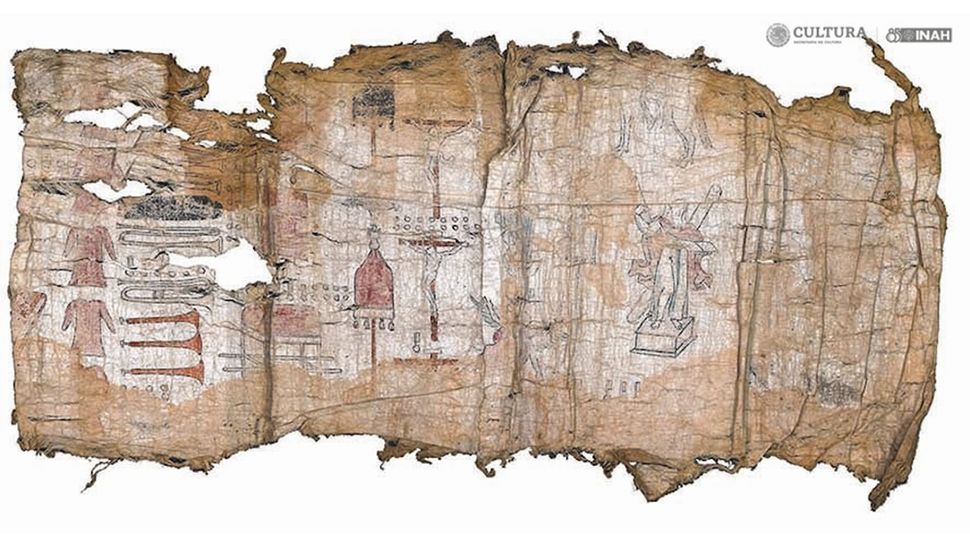
A private family recently sold three Aztec codices from the 16th and 17th centuries to the Mexican government. (Image credit: ©SC, INAH, BNAH)
Centuries-old codices from what is now Mexico hold a wealth of knowledge about the Aztecs in their native language, including details about the founding of their capital, their conquests and their fall to the Spanish, according to Mexico's National Institute of Anthropology and History (INAH).
The Mexican government recently bought three illustrated codices, known as the Codices of San Andrés Tetepilco, from a private family that had passed down the Aztec documents for generations, the Spanish newspaper El País reported.
The Aztecs ruled over a large area of Mexico during the 15th and 16th centuries. Their capital was at Tenochtitlán, in what is now Mexico City. Between 1519 and 1521, a Spanish force conquered the Aztecs and established Spanish rule over the area. Codices written in the Indigenous Nahuatl language and Spanish continued to be produced into the early 17th century.
One of the newly purchased codices describes the founding of Tenochtitlán around 1300 and the lords who ruled it in pre-Hispanic times, INAH representatives said in a translated statement. The codex also describes the Aztec conquest of the city of Tetepilco around 1440 and how that city's ruler swore vassalage to the Aztecs. It even details the arrival of the Spanish in 1519 and their rule up to the year 1611, the statement said. The Spanish continued to rule Mexico until 1821.

The centuries-old codices still contain traces of color, largely from plants, charcoal, ocher and indigo. (Image credit: ©SC, INAH, BNAH)
More:
https://www.livescience.com/archaeology/centuries-old-aztec-texts-detail-history-of-their-capital-conquests-and-fall-to-the-spanish
The IMF's Bottomless Bottom-Line Cruelty
How the IMF & the World Bank—in the name of progress—succeed in keeping poor countries poor.
Rob Larson
Everyone knows there are many extremely poor countries in the world, but people rarely talk about why. These nations are sometimes collectively called the Third World (being neither the Western First World or the Soviet-aligned Second World); the more recent euphemism is usually the “developing world.” Whatever the name, these states are imagined by most Westerners to be scary, struggling places, and they tend to take the blame for global woes like terrorism and unsanctioned migration. Some of our greatest billionaires polish their public personas by donating to charities that supposedly aid the people trapped in grinding poverty across parts of Africa, southern Asia, and Latin America.
These countries have been The Poor Countries for quite some time now. At the end of World War II, the great states of the developing world—like Brazil, Indonesia, India, and the Congo—were dramatically poorer than the developed world. Today, 75 years later, and after decades of “investment” and “development,” they’re still very poor. In fact, huge numbers of people in these large, resource-rich countries are much poorer than their ancestors. What the hell is going on here? Colonialism ended years ago—didn’t it? Or did it just change shape?
. . .
After the imperial powers were beaten, exhausted, and/or occupied during World War II, the developing world strove for independence—and the Europeans fought like mad to avoid giving it to them. From French Algeria to British India, the colonial powers used ungodly violence and torture on a huge scale against dissidents, keeping cruel pro-Western dictators in office as long as possible. As the developing countries of the Global South gradually won independence through long, bloody struggles, their traumatized societies came under what leftists often call “neocolonialism”—a system in which rich capitalist states install and support local dictators and strongmen, allowing Western companies to continue owning many of the same old crucial resources and selling products to profitable, effectively captive markets. This pattern widened after the Cold War, when the “fall of the Soviet bloc… [created] a new imperial age,” as the conservative Financial Times of London related, with “a system of indirect rule that has involved the integration of leaders of developing countries into the network of the new ruling class.”
From Regular Slavery to Debt Slavery
One of the most valuable tools used to keep developing countries from developing some real independence has been debt. The battle-scarred governments arising from the wars of independence—some authoritarian and some managing to remain partially republican—often wanted compensation from the former imperial powers, which they’re mostly still hoping for. This was in recognition of the scale of imperial crimes against the developing world, from the enormous violence unleashed against them to the massive wealth that was stripped to build up Western economies, plus the fact that choice resources like oil deposits and rich farmland often remained in the hands of citizens of the colonial powers. Europe and the United States refused, though they frequently indicated they were prepared to lend developing countries the money instead.
Despite requests for capital grants as reparations rather than lines of credit, many developing countries ended up borrowing money, ostensibly for development—investing in education, health, and domestic infrastructure to begin the journey to something more like the developed world’s standard of living. Often funds were needed to pay the developed powers “compensation” for nationalizing their assets, like the Suez Canal. Frequently these loans were organized by the World Bank, created by the Western powers after World War II to help provide development credit to the Third World. These loans for roads, bridges, schools and hospitals were supposed to be paid for by the countries’ great future economic growth, although notably the World Bank and Western investors favored projects that built on poor countries’ existing comparative trade advantages. This meant exporting basic commodities like bulk crops, or raw materials like oil and copper—largely leaving the higher valued-added processing and manufacturing to the developed world.

More:
https://www.currentaffairs.org/2022/02/the-imfs-bottomless-bottom-line-cruelty
Profile Information
Member since: 2002Number of posts: 160,503